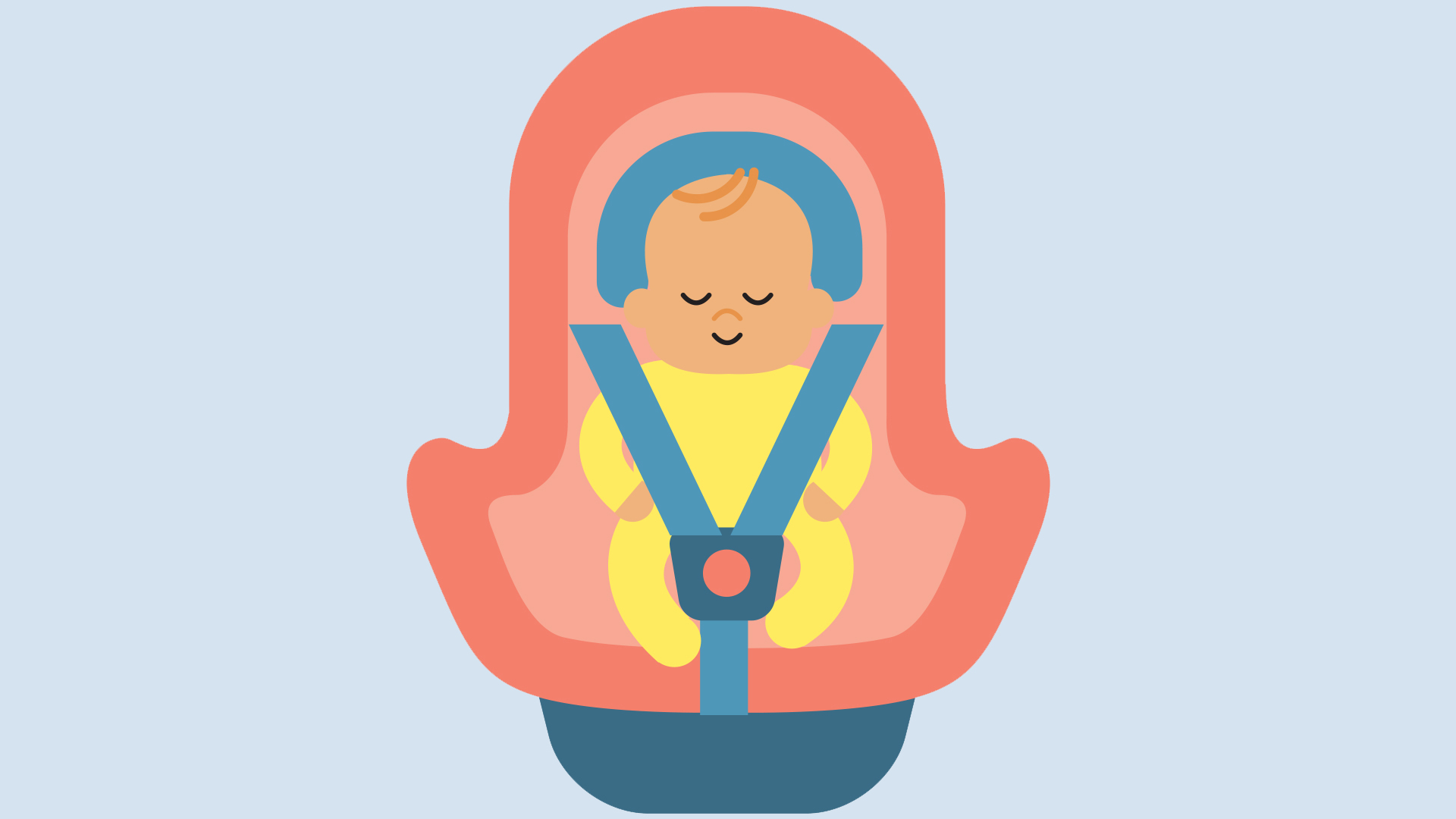Can Babies Die Sleeping in a Car Seat

Car seats and SIDS
It is essential for safety that babies travel in a car seat. However, it is recommended that you avoid travelling in cars with pre-term and young babies for long distances. Research into the link between car seats and SIDS found young babies may be at risk of breathing difficulties if they travel while sitting in an upright position for too long.
There is no published evidence that states how long babies should stay in a car seat when travelling. However, infant healthcare professionals, safety experts and most car manufacturers recommend that babies should not be in a car seat for longer than 2 hours at a time and they should be taken out frequently.
If your trip involves driving for long periods of time, you should stop for regular breaks. This will allow you to check on your baby, take them out of the car seat and let them stretch and move around.
Ideally, a second adult should travel in the back of the car with your baby, or if travelling alone use a mirror to keep an eye on your baby.
If your baby changes their position and slumps forward, then you should immediately stop, take them out of the car seat and sit them upright before continuing on your journey.
Babies should not sleep in car seats longer than is necessary
Car seats are designed to keep babies safe while travelling, not as a main sleeping place. Car seats should only be used for transport and not as an alternative for cots or high chairs. It's OK for your baby to fall asleep in a car seat when travelling, but they should be taken out as soon as you get to your destination, and placed onto a firm, flat surface to sleep.
Overheating
Babies that get too hot are at a greater risk of SIDS. We advise removing any hats or outdoor clothing such as snowsuits and coats once your baby is in the car. The best way to check your baby isn't getting too hot is to feel their tummy or back of their neck. If their skin feels clammy or sweaty they are too hot, so remove a layer of clothing.
Make sure you have the right car seat for your baby's weight and it is fitted properly (many shops will help with this).
It is recommended that you do not buy or use a second-hand car seat as you cannot be certain of its history. It could have been involved in an accident and the damage may not be visible.
Car seats must conform to safety standards – United Nations standard, ECE Regulation 44.04 (or R 44.03) or to the new i-size regulation, R129. Look for the 'E' mark label on the seat.
Car seats and SIDS FAQs
How long can a baby travel in a car seat for?
There is no published evidence which sets out how long babies should be kept in a car seat when travelling. However, infant healthcare professionals, safety experts and most car manufacturers recommend that babies should not be in a car seat for longer than 2 hours at a time and they should be taken out frequently. If your trip involves driving for long periods of time, you should stop for regular breaks.
Are babies at a greater risk of SIDS in a car seat?
Avoid travelling in cars with pre-term and young babies for long distances. Research published in 2016 by the University of Bristol looked at the health effects on babies of travelling in car seats. The study found pre-term and young babies may be at risk of breathing difficulties if travelling in an upright position in car seats for a long period of time.
You can read the findings of the research here https://fn.bmj.com/content/102/2/F136
My baby often falls asleep in their car seat – can I leave them in there?
It's OK for your baby to fall asleep in a car seat for a short amount of time when travelling, but they should be taken out of the car seat as soon as you get to your destination, and placed onto a firm, flat surface to sleep such as a cot or moses basket.
For more information on car seats and SIDS download our fact sheet
For more information about safer sleep click here
Can Babies Die Sleeping in a Car Seat
Source: https://www.lullabytrust.org.uk/safer-sleep-advice/car-seats-and-sids/
0 Response to "Can Babies Die Sleeping in a Car Seat"
Post a Comment